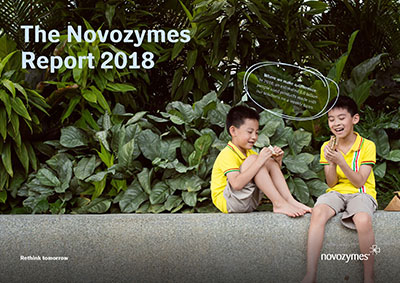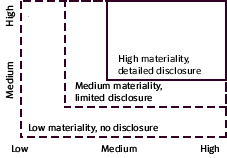Our 2018 materiality matrix
Our materiality matrix highlights the 16 most material financial and nonfinancial themes and acts as a guide for determining the topics we include in our annual disclosure. The illustration below is a snapshot of the upper-right quadrant of Novozymes’s materiality matrix and represents issues in the high material category only. A full list of all material topics can be found under "Disclosure on material issues".
In 2018, we studied relevant macrotrends and changes in the internal and external environment to understand the impact they have on our current materiality matrix. As a result of this process, we identified one new issue in the economic category: Trade policies. Changing global trade policies are impacting businesses all over the world. Therefore, it is important that we manage this issue to minimize the impact it may have on Novozymes’ business. All other issues remain unchanged.
We also strengthened our assessment approach to determine which SDG goals and targets we could contribute to by addressing the material issues through our business. We now highlight material issues where we believe our actions and initiatives to address the issue can significantly contribute to specific SDG targets. For more details, see "Value chain assessment", which includes all our material issues.


















 Target/flagship initiatives
Target/flagship initiatives
 Contributes to SDG target(s)
Contributes to SDG target(s)